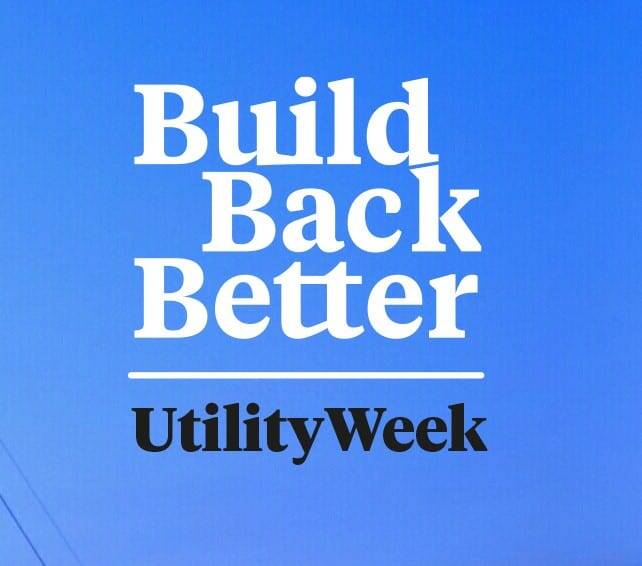You’ve reached your limit!
To continue enjoying Utility Week Innovate, brought to you in association with Utility Week Live or gain unlimited Utility Week site access choose the option that applies to you below:
Register to access Utility Week Innovate
- Get the latest insight on frontline business challenges
- Receive specialist sector newsletters to keep you informed
- Access our Utility Week Innovate content for free
- Join us in bringing collaborative innovation to life at Utility Week Live
Dominic Goslett, director of utilities at TransUnion in the UK, discusses the urgent need to form plans for customer payments and business cashflow as the downturn bites
As an information and insights provider, TransUnion has been track ing the impact of the Covid-19 pandemic on consumer credit in our global Financial Hardship Study. Based on survey of 1,100 consumers in August 2020, it shows three in five UK households have been nega
ing the impact of the Covid-19 pandemic on consumer credit in our global Financial Hardship Study. Based on survey of 1,100 consumers in August 2020, it shows three in five UK households have been nega tively affected financially. Of those, seven in 10 (69 percent) are worried about their ability to pay bills, and utilities has consistently been one of the areas of greatest concern since our study began in March.
tively affected financially. Of those, seven in 10 (69 percent) are worried about their ability to pay bills, and utilities has consistently been one of the areas of greatest concern since our study began in March.
Our latest survey reveals 37 percent of those financially impacted say they are not able to pay their utility bill. This is second only to credit cards at 45 percent. Figures from the debt charity StepChange echo this concern – with estimates that 1.2 million people are behind on utility bills and almost 600,000 on rent.
Utilities providers themselves have not been immune to financial hardship in recent months, with suppliers publicly expressing concern about the potential number of households that could default on their bills in the second half of the year. As government support for individuals and businesses winds down, understanding customer perspectives and difficulties will be key to a sustainable future.
The response to date
There has been considerable support offered to consumers to help them through this difficult time, with 23 percent receiving some form of forbearance when it comes to their financial obligations. Our recent survey shows that of those struggling to pay their bills, 20 percent hope to defer payments, whilst 15 percent plan to use money from the Coronavirus Job Retention Scheme to help them with their bills.
This government support initiative has helped households throughout the country to cope with the financial shock of the pandemic; with 9.6 million people using the scheme as of August, according to the latest figures.
The cost of this has been substantial – with the bill sitting at over £35 billion by mid August. As much as it has been needed, the government cannot sustain this indefinitely, and as we look ahead to the latter part of the year, many consumers are facing challenging times. For some that could mean reduced working hours or job losses.
What lies ahead
Of those who have received some sort of financial forbearance, 16 percent have made agreements with their utilities providers, coming in significantly behind finance providers –mortgages (35 percent), credit cards (32 percent), and personal loans (19 percent). From the consumer perspective, the industry needs to do more here.
This is an opportunity for utility providers to engage with their customers and set out appropriate payment plans now, pre-empting future difficulties, rather than waiting until the situation becomes extreme. This will help prevent consumers building up arrears, whilst also delivering a stablising effect so providers can minimise the impact of any future shocks when the various support packages in place come to an end.
It’s also important that customers receiving forbearance from their utilities providers have a path back to full payments that is realistic. Our latest research showed that over a quarter of UK consumers (26 percent) are hoping to extend the provisions they have in place for another few months, whilst more than a third (35 percent) would like to structure their payment plans so they can catch up gradually, while paying their regular monthly commitments. For utilities providers, this may require difficult discussions on adjusting income or spending plans over the short to medium term.
Understanding customer needs
Crucial in creating suitable plans tailored to individual customer needs is an understanding of their financial situation and what is affordable for them. To achieve this, utilities providers are increasingly looking to take credit information into account as a means of assessing and understanding their customers. This is more timely now than ever.
As a result of Covid-19, new levels of customer understanding and management are required. Utilities providers need to enhance their analytical ability to assess individual financial situations, so they know if customers are experiencing changes in circumstance as a result of the pandemic, and how they are responding. This gives the organisation a clear picture of what to expect and the insight to manage customer relationships as effectively as possible.
Throughout the pandemic, TransUnion has been helping organisations across both the private and public sector to harness the insights available to address their own specific challenges, often delivering new solutions at pace. In the utilities sector, the solutions could range from straightforward credit checks to more detailed affordability assessments in order to determine customer needs and address them accordingly.
A view to the future
Our study suggests a discrepancy between the expectations of consumers and of utilities providers. Consumers feel the initial shock of Covid-19 has subsided, since around a quarter of households now do not expect any future financial impact from the pandemic – up from 14 percent than when our research began in March – although there is still a long road to recovery.
The providers, meanwhile, are bracing themselves for potential cashflow, debt and affordability issues as government support schemes come to an end. The first phase has been weathered, but urgent attention is needed to ensure businesses can sustain the ongoing impact in the months ahead.
Adopting a clear strategy of working to understand, in detail, the consumer’s situation through open and transparent communication, and using that to form plans for customer payments and business cashflow is critical to the long-term interests of the industry and those it serves. Now is the time to act. By using the tools available to better understand their customers, utilities providers can offer the support needed, whilst also protecting their business and their bottom line, as we all continue to rise to the challenges of this unprecedented time.
What utilities should be doing to help vulnerable customers is one of the topics being discussed at our Build Back Better Forum in October
Please login or Register to leave a comment.